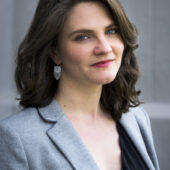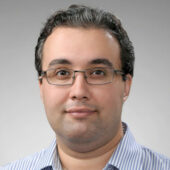Key Information
Dates
- 21-22 September 2021
Location
- Online
Submissions
- Submission Deadline: 4 June 2021
- Notification by: 12 July 2021
- Camera ready version: 9 August 2021 (for LCNS proceedings only)
After two successful editions, the international MISDOOM symposium on misinformation in online media returns for a 3rd edition, this time co-hosted by the Oxford Internet Institute and the Universiteit Utrecht on 21-22 September 2021. Topics include health misinformation, hate speech, misinformation diffusion, news spreading behaviour and mitigation, harm-aware news recommender systems, and related topics on misinformation in online media.
Online media have become a politically, economically, and organizationally critical infrastructure. Internet users all over the world can directly interact with each other and participate in political discussions. Through online media, journalists have access to enormous amounts of information and public sentiment that increasingly becomes part of their reporting. Politicians refine their positions and actions based on the (seemingly) public opinion, which they distill from online media. Others use these channels to distribute their views. Companies allow product reviews by users to provide crowd-based quality assurance.
The symposium brings together researchers from multiple disciplines, including communication science, computer science, computational social science, political communication, journalism and media studies, as well as practitioners in journalism and online media. The symposium has a strong multidisciplinary character, and aims to cater to the habits of different disciplines. Therefore, there are three submission tracks (see detailed information below):
Submission deadline: 4 June 2021
Cost of Attendance: Free
Submissions for this event have closed.
In an ideal world, participation and openness would foster free and democratic processes as well as beneficial societal interactions. However, beyond the desired space for free expression of public opinions, such openness also provides options for large-scaled and orchestrated manipulations. Groups of humans (“trolls”) or semi- to fully-automated systems (“social bots”) can bias or manipulate online discussions and inject false perceptions into social media. How can we detect and learn from this phenomenon, and how do we combat fake news and misinformation?
Participants can discuss and contribute to the following (non-exclusive list of) topics:
In addition to keynote talks and panel discussions, we particularly invite researchers and practitioners to present their work at the symposium.
Given that we welcome both social scientists and computer scientists, and that the publication strategies of these fields differ, we solicit three types of contributions that, upon acceptance, result in the same opportunity to present at MISDOOM:
A program committee of international recognized scholars evaluates all abstracts for suitability according to international research standards. All accepted abstracts and full papers are eligible for oral presentation at the symposium.
Dr Jonathan Bright General Chair
Dr Anastasia Giachanou General Chair
Dr Viktoria Spaiser Program Chair
Dr Francesca Spezzano Program Chair
Anna George Outreach Chair
Alexandra Pavliuc Communications Chair
Elena Kochkina, Queen Mary University
Kelechi Amakoh, Aarhus University
Heidi Vepsäläinen, University of Helsinki
Eric Fernandes de Mello Araujo, Vrije Universiteit Amsterdam
Henna Paakki, Aalto University
Taha Yasseri, University College Dublin
Alon Sela, Ariel University
Adriana Amaral, UNISINOS
Marina Tulin, Erasmus University Rotterdam
Hendrik Heuer, University of Bremen
Dennis M. Riehle, Universität Koblenz-Landau
Milos Ulman, Czech University of Life Sciences
Neta Kligler Vilenchik, Hebrew University of Jerusalem
Peter van der Putten, LIACS, Leiden University & Pegasystems
Dennis Assenmacher, Uni Münster
Thorsten Quandt, WWU Munster
Ross Towns, Leiden University
Heike Trautmann, University of Münster
Stefano Cresci, IIT-CNR
Chico Camargo, University of Exeter
Giulio Barbero, Leiden University
Ebrahim Bagheri, Ryerson University
Mehwish Nasim, CSIRO Data61
Myrto Pantazi, Oxford Internet Institute
Sílvia Majó-Vázquez, University of Oxford
Florian Wintterlin, University of Muenster
Jan Schacht, HAW Hamburg
Louis Shekhtman, Bar Ilan University
Tommaso Caselli, Rijksuniversiteit Groningen
Christian Burgers, Department of Communication Studies, VU University Amsterdam
Arkaitz Zubiaga, Queen Mary University of London
Cody Buntain, New York University
Ansgard Heinrich, University of Groningen
German Neubaum, University of Duisburg-Essen
Raquel Recuero, Universidade Federal de Pelotas (UFPel)
Matteo Gagliolo, Université libre de Bruxelles (ULB)
Meysam Alizadeh, Princeton University
Elly Konijn, Vrije Universiteit Amsterdam
Marco Niemann, University of Muenster
Marcel Schliebs, Oxford Internet Institute
Anne Dirskon, University of Leiden
Maziyar Panahi, Institut des Systèmes Complexes Paris Île-de-France
Martin Wettstein, University of Zurich
Mona Elswah, Oxford Internet Institute
Nicoleta Corbu, National University of Political Studies and Public Administration SNSPA
Aleksi Knuutila, Oxford Internet Institute
Travis Coan, Exeter University
Lena Frischlich, University of Munster
Tim Schatto-Eckrodt, University of Muenster
Gerhard Weiss, Maastricht University
Aliaksandr Herasimenka, Oxford Internet Institute
André Calero Valdez, RWTH Aachen University
Tom Nicholls, University of Oxford
Łukasz Gajewski, Warsaw University of Technology

Vice President, Centre for Information Resilience
Nina Jankowicz is an internationally-recognized expert on disinformation and democratization.

Assistant Professor, Department of Electrical Engineering and Computer Science, Syracuse University

Professor of Social Psychology in Society , Department of Psychology, University of Cambridge
The submission deadline was 4 June 2021 (extended and final). Submissions for this event have closed.